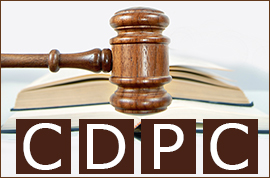Technological developments are rapidly evolving in the 21st century and especially in the newly developed sector of Artificial Intelligence.
The Council of Europe considers the Artificial Intelligence (AI) regulation as one of its priorities in order to find a fair balance between the benefits of technological progress and the protection of our fundamental values.
The Thematic Session on artificial intelligence and criminal law responsibility focused on the importance of a meaningful approach in legal systems across Europe to deal with this challenge.
The session aimed at the comparison and understanding of the different criminal legislations set out by the member States, and to highlighting and comparing the issues of automated driving at a domestic and international level. It also tried to give an answer to the following questions: What happens in case of an accident across the border? Who will be responsible if there is no driver? Why Mutual Legal Assistance (MLA), digital evidence as well as common supranational approach are needed in case of automated driving?
Criminal Law Division, Action against Crime Department, is responsible for organising this meeting. International specialists and experts in the AI area took part in the session.




